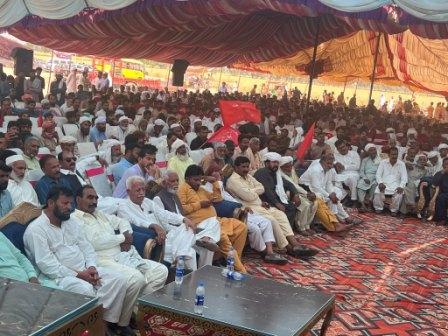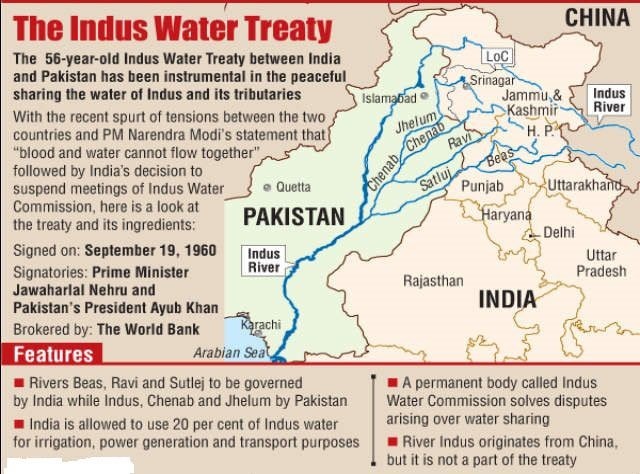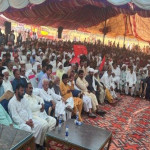
Nationwide Protests Erupt Against Corporate Farming, Water Grabbing, Wheat Pricing & PASSCO Privatization
In a historic show of resistance, the Pakistan Kissan Rabita Committee (PKRC), organized nationwide protests in over 30 cities and towns across Pakistan. Farmers, workers, and civil society members mobilized in Islamabad, Lahore, Bahawalpur, Rajanpur, Jhang, Kacha Khu (Khaniwal), Bhakkar, Jatoi, Shikarpur, Larkana, Sukkur, Badin, Mardan, Upper Dir, Malakand, Lakki Marwat, and other districts. “We Will Not Be Displaced”: Farmers Defend Land Rights In Kacha Khu, Farooq Tariq, Secretary General of PKRC, addressed a massive gathering, condemning the state’s leasing of 1.7 million acres of agricultural land to corporate entities. “This is a clear attempt to displace small farmers and hand over our food systems to corporate profiteers,” he said, demanding legislation to secure land rights for landless peasants within the framework of UNDROP. Resisting the “Six Canals” Project: Farmers Challenge Water Diversion Across Punjab and Sindh, protesters rejected the government’s proposed six new canals from the Indus River—a move they say would benefit corporations at the expense of small farmers and local ecologies. In Bahawalpur, PKRC leaders warned that the project would displace thousands and damage the Cholistan ecosystem. In Shikarpur, Ali Khoso criticized the Indus River System Authority (IRSA) for issuing misleading water availability certificates, ignoring long-term impacts on Sindh’s agriculture and water rights. Speaking in Lahore, Saiema Zia stressed the violation of the 1991 Water Accord, highlighting how the canal project would worsen water scarcity and harm the fragile Indus Delta. Minimum Support Price & Economic Sovereignty: Farmers Demand Fair Prices We are fighting for a Minimum Support Price, public stockholding, and public procurement systems that protect farmers from the volatility of the global market. The MSP is a critical safeguard against unequal pricing, high production costs, and the influx of subsidized agricultural imports. Our struggle is for protection from market fluctuations and the uncertainty imposed by the global food system. We further demand the abolition of the WTO's Agreement on Agriculture (AoA) and all Free Trade Agreements (FTAs) that enable WTO interference in our agricultural and food systems. We stand firmly against IMF-imposed neoliberal policies that are anti-farmer and call for market regulation to ensure fair prices for farmers' produce. We also oppose the private sector’s involvement in grain imports and dumping, which depresses local market prices and undermines our food sovereignty. Farmers across the country are demanding a fair MSP of Rs. 4000 for 40 kg of wheat, arguing that the current price fails to cover their rising production costs. Ground Voices: Women, Workers, and Movements Lead the Way At a powerful protest in Kacha Khu, Zulfikar Awan, President of Pakistan Kissan Ittehad, declared that no contractor or corporate entity would be allowed to take over peasant land. He highlighted the leadership of women farmers in defending their communities. Mehar Ghulam Abbas, President of Anjuman Mazareen Punjab, recalled their peaceful resistance in Kot Addu, Arifwala, and Hasilpur, and urged Chief Minister Maryam Nawaz to reinstate the Peasants Committee previously formed to address land-related issues. These struggles are not only about land and water, but about agricultural sovereignty and survival. A Call for Agrarian Justice: Unified Demands The protests culminated in a united set of demands that reflect the core concerns of Peasants small scale food producers and rural communities: ● Halt corporate farming and cancel land leases to private companies ● Stop the construction of six canals from the Indus River ● Ensure fair and equitable water distribution across provinces ● Fix the Minimum Support Price (MSP) of wheat at Rs 4,000 per maund ● Cancel plans to privatize the Pakistan Agricultural Storage and Services Corporation (PASSCO) ● Abolish Free Trade Agreements (FTAs) and the WTO’s Agreement on Agriculture (AoA) ● Implement agrarian reforms based on the United Nations Declaration on the Rights of Peasants (UNDROP)
Other Events
 On Feb 1, 2019
On Feb 1, 2019
Two day training w...
 On Feb 27, 2019
On Feb 27, 2019
Forming the future...
 On Mar 4, 2021
On Mar 4, 2021
Federal Policy Dia...
 On May 30, 2024
On May 30, 2024
Federal Policy Dia...
 On May 24, 2025
On May 24, 2025


